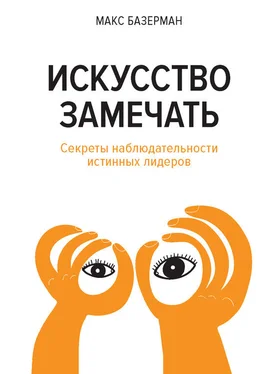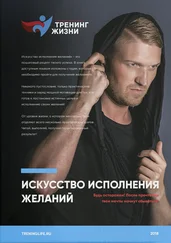5. Larry Irons, “Hurricane Katrina as a Predictable Surprise,” Homeland Security Affairs 1, no. 2 (2005): 4, http://www.hsaj.org/?article=1.2.7.
6. John S. Petterson, Laura D. Stanley, Edward Glazier, and James Philipp, “A Preliminary Assessment of Social and Economic Impacts Associated with Hurricane Katrina,” American Anthropologist 108, no.4 (2008): 643.
7. Petterson et al., “A Preliminary Assessment of Social and Economic Impacts Associated with Hurricane Katrina,”666.
8. Max H. Bazerman and Michael D. Watkins, Predictable Surprises: The Disasters You Should Have Seen Coming and How to Prevent Them (Boston: Harvard Business School Press, 2004).
9. Bazerman and Watkins, Predictable Surprises.
10. Shelly E. Taylor, Positive Illusions: Creative Self-Deception and the Healthy Mind (New York: Basic Books, 1989); Shelly E. Taylor and Jonathon D. Brown, “Illusion and Well-being: A Social Psychological Perspective on Mental Health,” Psychological Bulletin 103, no. 2 (1988): 193–210.
11. David Dunning, Chip Heath, and Jerry M. Suls, “Flawed Self-Assessment: Implications for Health, Education, and Business,”Psychological Science in the Public Interest 5, no. 3 (2004): 69–106; Bazerman and Moore, Judgment in Managerial Decision Making; Bazerman and Watkins, Predictable Surprises.
12. Ritov and Baron, “Reluctance to Vaccinate.”
13. “Opening Statement of Chairman Tom Davis,”House Select Committee to Question Former FEMA Director Michael Brown, September 23, 2005, cited by Irons, Hurricane Katrina as a Predictable Surprise.”
14. Более подробно организационные причины неспособности реагировать на предсказуемые неожиданности обсуждаются в главе 5 книги Bazerman and Watkins, Predictable Surprises.
15. Bazerman and Watkins, Predictable Surprises.
16. Там же.
17. Там же.
18. Там же.
19. Michael Lewis, The Big Short: Inside the Doomsday Machine (New York: Norton, 2010).
20. Quoted in Lewis, The Big Short, 28.
21. Lewis, The Big Short, 108.
22. Там же.
Глава 12. Как научиться замечать
1. Warren G. Bennis and Robert J. Thomas, Geeks and Geezers (Boston: Harvard Business School Publishing, 2002).
2. Richard E. Nisbett and Lee Ross, Human Inference: Strategies and Shortcomings of Social Judgment (Englewood Cliffs, NJ: Prentice-Hall, 1980).
3. Michael Lewis, Moneyball: The Art of Winning an Unfair Game (New York: Norton, 2003).
4. Richard H. Thaler and Cass Sunstein, “Who’s on First?” New Republic, September 1, 2003, 27.
5. Richard Perez-Pena, “Oregon Looks at Way to Attend College Now and Repay State Later,” New York Times, July 3, 2013, http:/www.nytimes.com/2013/07/04/education/in-oregon-a-plan-to-eliminate-tuition-and-loans-at-state-colleges.html. Хотя закон прошел, в ходе его внедрения имели место многие сложности.
6. Tara Siegel Bernard, “Program Links Loans to Future Earnings,” New York Times, July 19, 2013, http://www.nytimes.com/2013/07/20/your-money/unusual-student-loan-programs-link-to-future-earnings.html?emc=eta1&r=0&pagewanted=all.
7. Barry J. Nalebuff and Ian Ayres, Why Not? How to Use Everyday Ingenuity to Solve Problems Big and Small (Boston: Harvard Business School Press, 2003).
8. Daniel Kahneman and Dan Lovallo, “Timid Choices and Bold Forecasts: A Cognitive Perspective on Risk Taking,” Management Science 39 (1993): 17–31.
9. Daniel Kahneman and Dan Lovallo, “Timid Choices and Bold Forecasts: A Cognitive Perspective on Risk Taking,” Management Science 39 (1993): 17–31.
Макс Базерман– профессор Гарвардской школы бизнеса, доктор наук, руководитель Центра общественного лидерства в Гарвардской школе Кеннеди, автор бестселлера «Когда ваш партнер лжет, а когда говорит правду». Преподает, проводит семинары для менеджеров и руководителей по принятию решений, консультирует компании и правительства более чем в 30 странах мира.
Шабри К., Саймонс Д. Невидимая горилла, или История о том, как обманчива наша интуиция. – М.: Карьера Пресс, 2011.
Канеман Д. Думай медленно… Решай быстро. – М.: АСТ, 2013.
Ариели Д. Поведенческая экономика. Почему люди ведут себя иррационально и как заработать на этом. – М.: Манн, Иванов и Фарбер, 2013.
От англ. what you see is all there is. – Прим. ред.
От англ. what you see is not all there is. – Прим. ред.
На самом деле это 16 так называемых первоклассных банков (Prime banks), выбранных в качестве основных маркет-мейкеров денежного рынка Лондона. – Прим. пер.
Вероятность ошибочного отвержения проверяемой гипотезы. – Прим. пер.
Дословный перевод Artful Dodger – «искусный плут» ( англ. ). – Прим. пер.
Малхотра Д., Базерман М. Г. Когда ваш партнер лжет, а когда говорит правду. Искусство вести важнейшие переговоры. – М.: АСТ, 2011.
Это видео можно посмотреть здесь: http://www.youtube.com/watch?v=FWSxSQsspiQ.
Слепота к изменениям. – Прим. пер.
Standardized Aptitude Test – тест на проверку академических способностей (англ.). – Прим. пер.
Энрикес Д. Чародей лжи. – М.: Азбука Бизнес, Азбука-Аттикус, 2014.
«No One Would Listen» («Никто не слушал») – это английское название книги. Русское издание: Маркополос Г. Финансовая пирамида Бернарда Мэдоффа. Расследование самой грандиозной аферы в истории. – М.: Вильямс, 2012.
Льюис М. Большая игра на понижение. Тайные пружины финансовой катастрофы. – М.: Альпина Паблишер, 2011.
Lemon – лимон ( англ. ), машина-развалюха (одно из значений). – Прим. пер.
Льюис М. MoneyBall. Как математика изменила самую популярную спортивную лигу в мире. – М.: Манн, Иванов и Фербер, 2013.
Конец ознакомительного отрывка
Купить книгу












